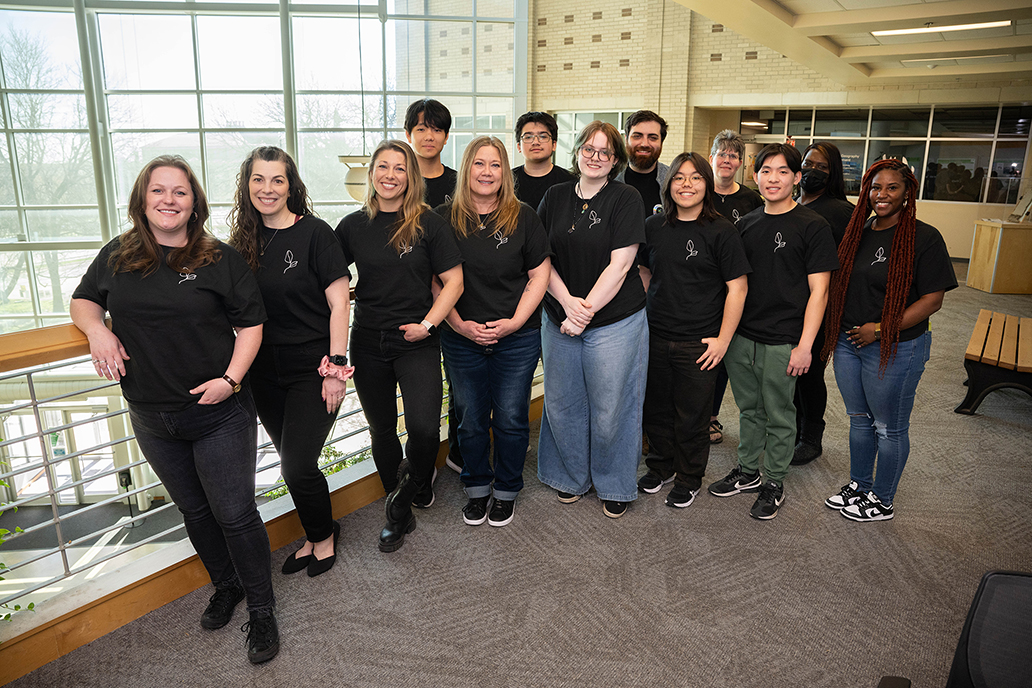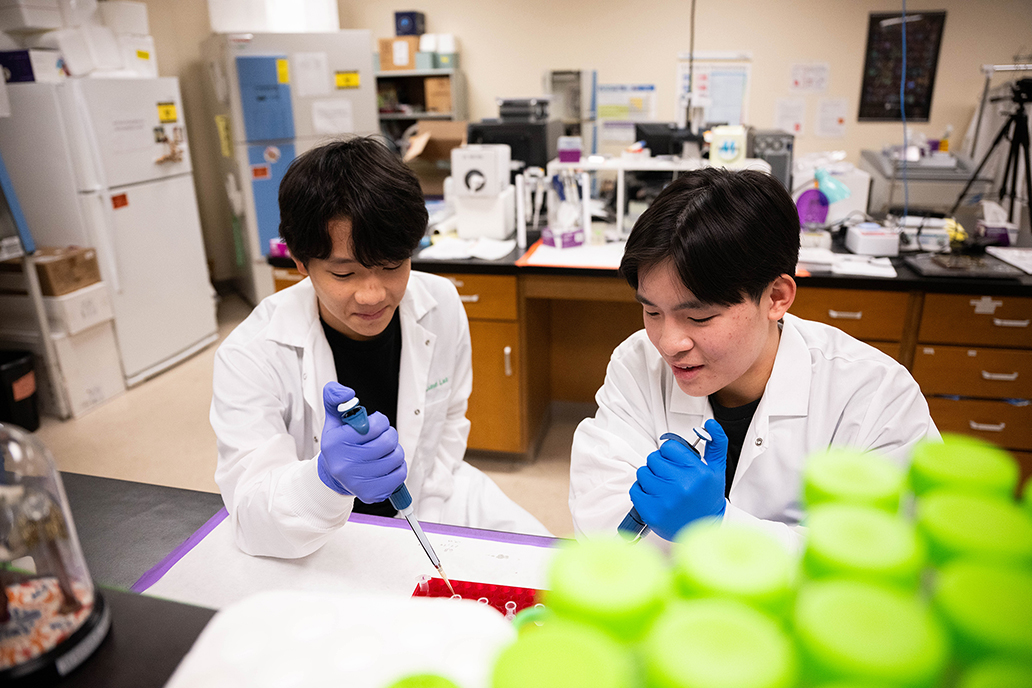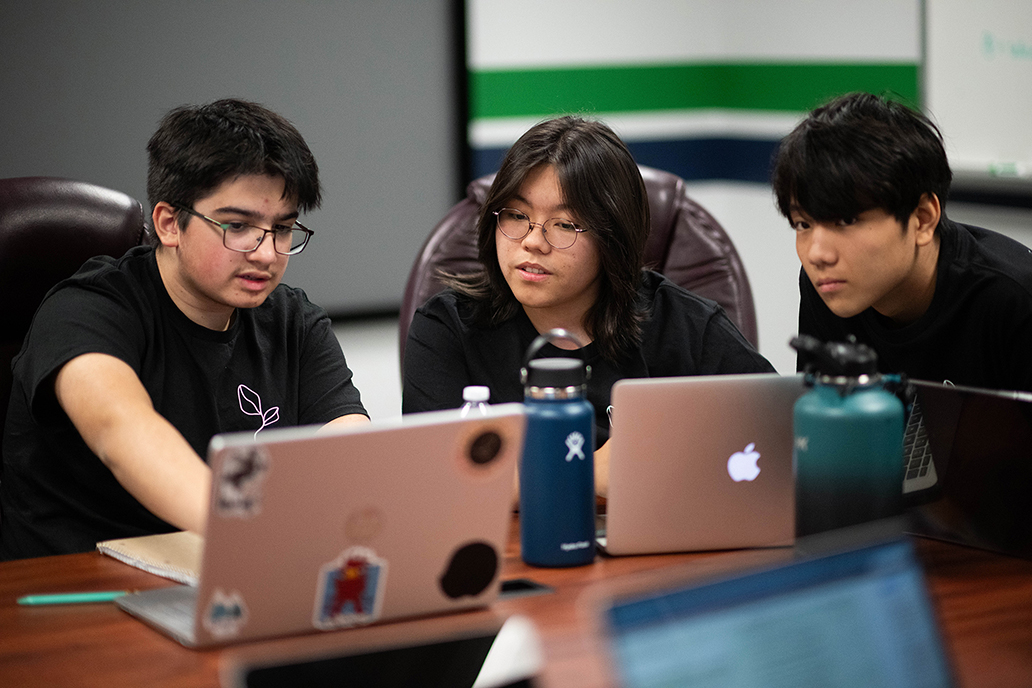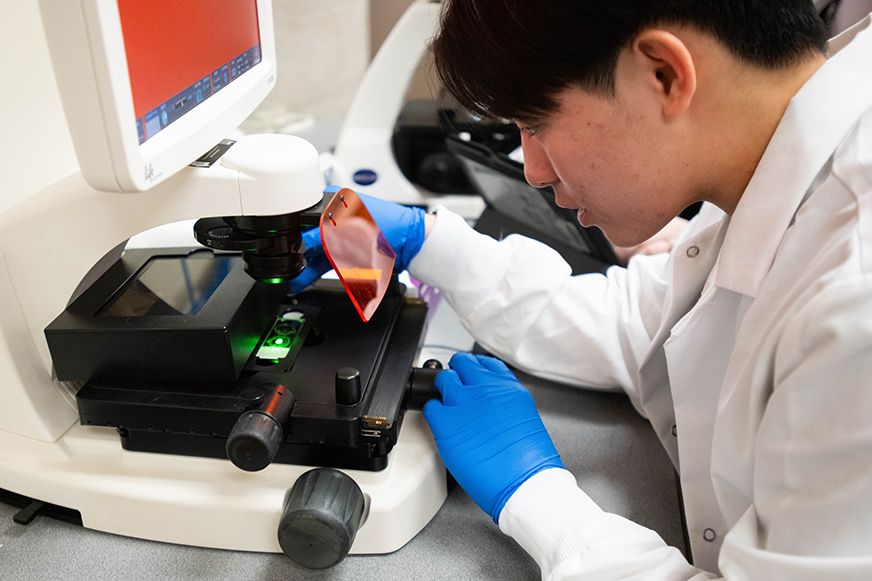Frisco High School junior Evan Hwi walks a mile to school each morning, but in the last six months the stroll has become more than routine. Along with his backpack and usual school gear, Evan carries a particulate matter sensor some days to measure air quality as he progresses down the busy neighborhood street.
Capturing data with the scientific instrument isn’t just for fun. Evan will use the information for research he’s conducting under the guidance of UNT faculty and students.
The project is part of Seeds to Empower (S2 EMPWER), a monthly UNT educational program bringing together area high school students and teachers to engage in scientific discussions and perform their own environmental research.
“I think this is the best thing I’ve done in my entire educational career,” Evan says. “It’s given me so much creative liberty to think and take on my own research that I’m intrinsically interested in.”
Providing unique research opportunities to participants, especially those from underrepresented groups, was one of the driving goals behind this program, as well as introducing students to possible future pathways in STEM fields. UNT researchers also hope to equip high school teachers with knowledge and tools they can weave into their own classroom lessons.
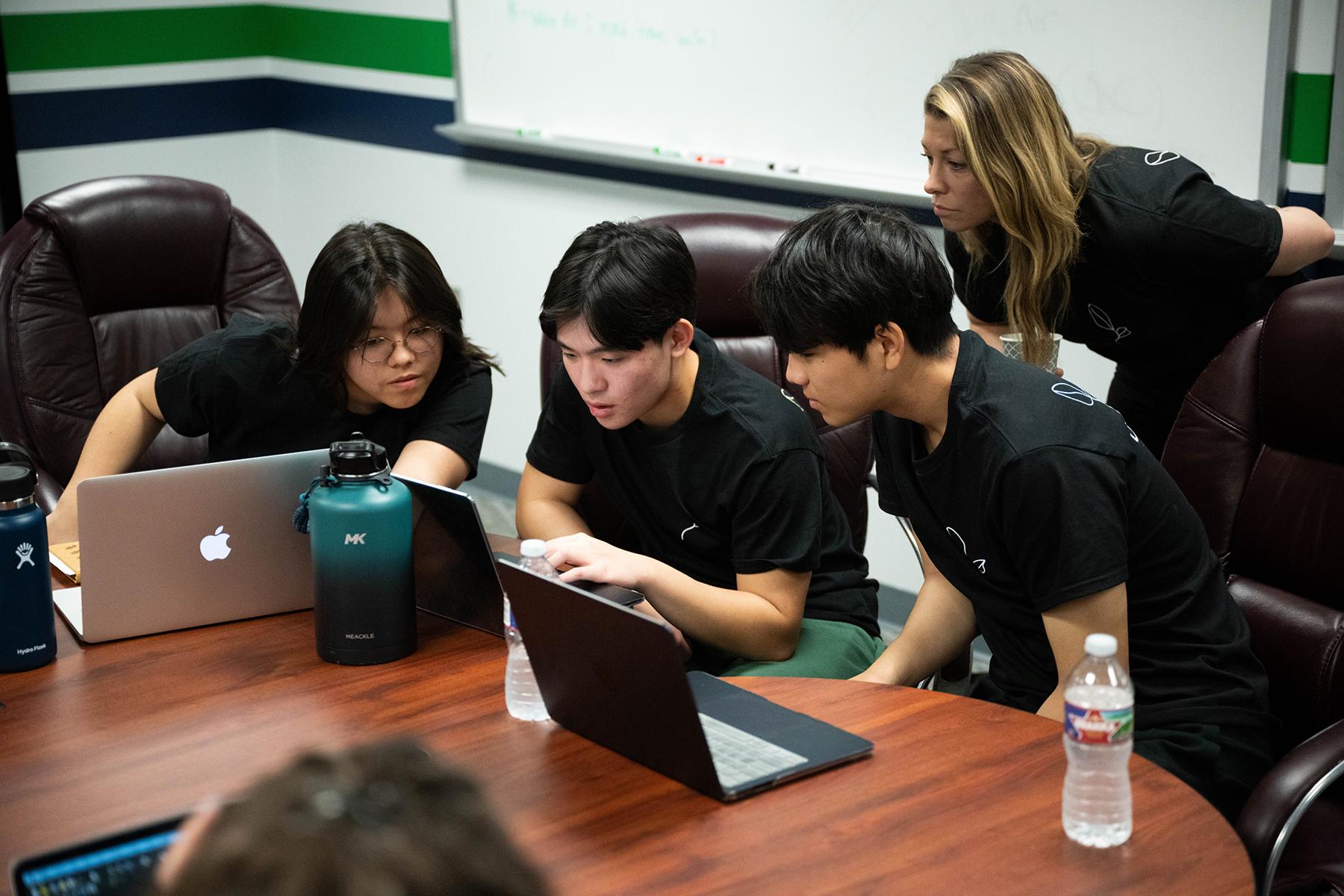 The community outreach effort unites researchers from across the university including
faculty Carrie Allen and Queshonda Kudaisi in the College of Education, Amie Lund
in the College of Science and Lauren Fischer in the College of Health and Public Service.
Each brings their own academic expertise and research perspective.
The community outreach effort unites researchers from across the university including
faculty Carrie Allen and Queshonda Kudaisi in the College of Education, Amie Lund
in the College of Science and Lauren Fischer in the College of Health and Public Service.
Each brings their own academic expertise and research perspective.
“When we have these complex issues in our world, it requires thinking about it from an interdisciplinary lens,” says Allen, an assistant professor of educational psychology. “Environmental issues especially require a lot of people who have different types of expertise and passions.”
Taking into consideration each participant’s interests and background, Allen helped them design individual research projects around air quality.
Evan is looking at how much particulate matter he might be exposed to while walking to school. Other participants are measuring particulate matter levels with other modes of transportation such as riding the bus.
“It’s really made me think about the way we design and build our cities,” Evan says. “Air quality is something seemingly invisible that we don’t think about, but it can lead to major consequences.”
“It’s been extremely exciting to work in the lab and look at tissues under a microscope. This experience has made me feel more certain about what I want to do in the future because I’ve enjoyed every second of this program. It feels like I’ve joined a community by coming here, which is amazing,” says Dylan, who plans to study geospatial sciences and microbiology in college and later work in academia.
Dylan’s environmental science teacher, Dawn Chegwidden, is participating in S2 EMPWER as well. Having students learn alongside teachers is another intentional aspect of the program.
“The teachers come as co-learners with the students, so it really creates this unique education model,” says Allen, who specializes in cultivating environments that foster learning and identity development.
“We hope this program can serve as a way to work in partnership with educators to develop hands-on curriculum they can put into practice in their classrooms.”
For Chegwidden, S2 EMPWER has introduced her to computer analysis tools to examine massive data sets, which could open new avenues of discovery for her students.

“We’re creating data files from publicly available information that students can look at and use to answer hypothetical research questions. This will help them learn how to apply data in scientific inquiries,” Chegwidden says.
S2 EMPWER began its pilot cohort in August 2023 with the support of grants from UNT’s Division of Research and Innovation and the Advanced Environmental Research Institute (AERI), a UNT interdisciplinary research institute that connects researchers from across the university to work together on projects focused on mitigating environmental problems.
As a culmination of this year’s program, S2 EMPWER participants will present their research projects to invited guests and local community officials in May. In the future, UNT faculty hope to scale the program to reach more students and teachers in the area.
“I think the more diversity we have in STEM fields and the more access young people have to education in these disciplines will bring about better future outcomes for our world,” says Lund, an associate professor of environmental toxicology who also serves as AERI’s director.
“As a human race, we’re facing a lot of big challenges coming our way, especially related to the environment, and we’re going to need critical thinkers to help solve these problems. STEM education helps advance those critical thinking skills.”
